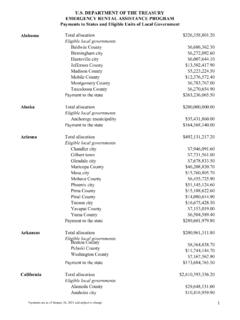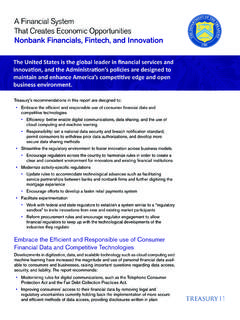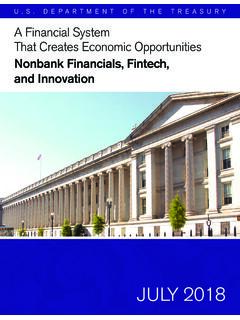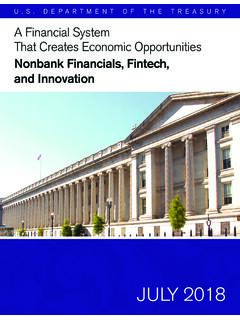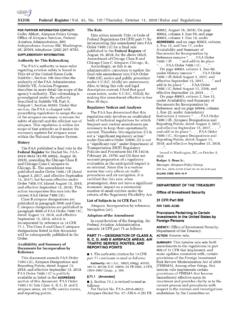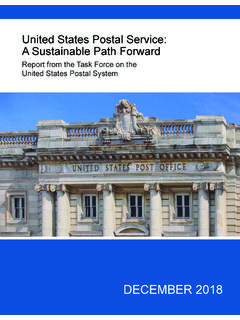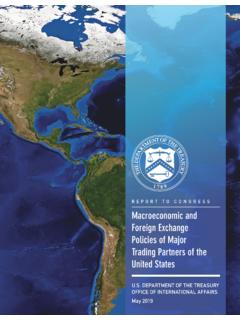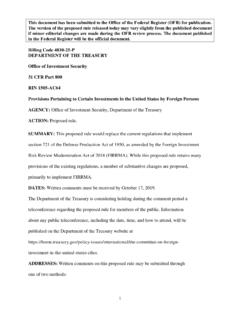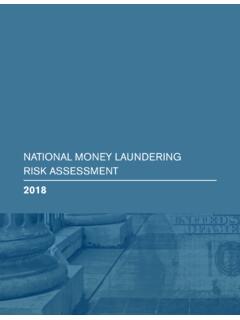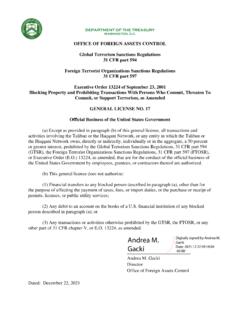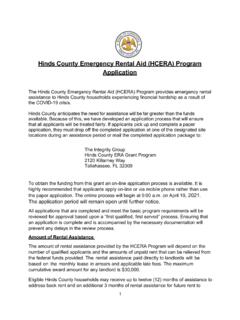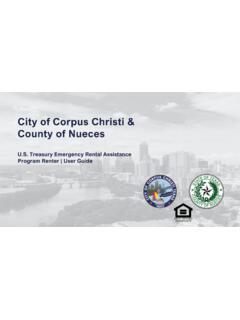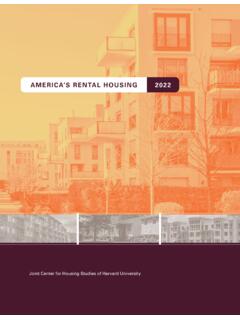Transcription of Fact Sheet: The Biden-Harris Administration Announces ...
1 May 7, 2021 Department of the Treasury emergency rental assistance fact sheet May 7, 2021 fact sheet : The Biden-Harris Administration Announces Enhanced Efforts to Prevent Evictions and Provide emergency assistance to Renters Even as the American economy continues its recovery from the devastating impact of the pandemic, millions of Americans face deep rental debt and fear evictions and loss of basic housing security. Countless middleclass landlords who rely on rental income to support their families have also faced deep financial distress to the COVID-19 crisis. Nearly 7 million Americans reported being behind on rent in the second half of April.
2 More than 40 percent of those renters worry that they could be evicted sometime in the next two months. Almost 12 million Americans lack confidence that they can make next month s rent. Evictions can have long-lasting consequences for families potentially disrupting school, worsening health, displacing neighborhood networks of support, and making it more difficult to find safe, affordable housing in the future. COVID-19 has exacerbated an affordable housing crisis that predated the pandemic and that has exacerbated deep disparities that threaten the strength of an economic recovery that must work for everyone.
3 Today, the Biden-Harris Administration is announcing the allocation of the additional $ billion under the American Rescue Plan for emergency rental assistance including $ billion targeted to the highest-need areas, where job loss and high market costs have made it especially difficult for low-income renters. Together with this additional financial support, the Biden-Harris Administration is implementing additional, stronger guidance to spur more funds getting to those renters most desperately in need of assistance to avoid evictions and secure housing stability. This new guidance recognizes the need to deliver more funding directly to renters to both prevent evictions and ensure those requiring new housing have the financial support needed.
4 These resources and guidance represent an all-of-government approach that leverages authorities and agencies across the entire Administration , from the Treasury Department to the Department of Housing and Urban Development to the White House American Rescue Plan Implementation Team and Policy Councils. This infusion of additional support will benefit both renters and landlords and make sure that the states and localities that have moved quickly to address the housing affordability crises wrought by the public health emergency and its negative economic impacts in their areas will continue to have the resources they need to fully meet the challenge.
5 Nine Enhanced Policies to Directly Aid Renters, Prevent Evictions and Help Americans Transition to Secure Housing: Today the Biden-Harris Administration is taking nine steps to stress the importance of ensuring emergency rental assistance reaches the Americans who need it most. May 7, 2021 1. Requires for the First Time Programs to Offer assistance Directly to Renters if Landlords Choose not to Participate. Today, the Treasury guidance makes clear that emergency rental assistance provided by the American Rescue Plan (ERA2) must be offered directly to renters when landlords do not accept payment. This will speed up payments to Americans who are most in need.
6 Many landlords are working with tenants in good faith to secure aid and pay off rental debts. However, it is unacceptable to allow Americans to suffer eviction or homelessness simply because some landlords are turning down Federal aid on their behalf. 2. Cuts in Half the Wait for assistance Offered to Renters When Landlords Do Not Participate. In addition to requiring direct aid to tenants if a landlord refuses to participate, Treasury is cutting in half the time to determine whether a landlord elects to participate is being cut in half. Currently, where assistance is first offered to landlords, programs must wait 14 days when reaching out by mail or 10 days when reaching out by phone, text, or email before offering relief to a tenant directly.
7 Those wait times will now be cut in half, to 7 days and 5 days respectively. 3. Allows For the First Time Offers of assistance Directly to Renters First. While rental assistance programs under the initial emergency rental assistance Plan ERA1 required an offer of assistance to landlords before reaching out to renters, today the Biden-Harris Administration has made clear that the new funds from the American Rescue Plan (ERA2) can be used to provide assistance to renters first and immediately. 4. Encourages Financial assistance to Support Renters Finding New Housing. While the Biden-Harris Administration will continue to do everything in its power to spur the use of emergency rental assistance to keep people in their homes, the new guidance recognizes that there may be increased need over the coming months for more hard-pressed renters to find new housing.
8 For emergency rental assistance to meet its housing security goals, the funds may need to be increasingly available to cover such costs as moving expenses, security deposits, future rent, utilities, and the cost of a transitional stay in a hotel or motel when a family has been displaced. The Treasury guidance reinforces that each of these expenses should be considered eligible and encouraged uses of emergency rental assistance . 5. Protects Renters from Eviction While Payments Are Being Made on Their Behalf. Starting with today s guidance, programs must prohibit the eviction of renters for nonpayment in months for which they receive emergency rental assistance .
9 While most landlords are working to secure relief and help renters stay in place, Treasury strongly encourages grantees to require that landlords not evict tenants for nonpayment of rent for 30 to 90 days longer than the period covered by the emergency rental assistance as a condition of receiving payment. 6. Prohibits Grantees from Establishing Documentation Requirements that Would Reduce Participation. Today s guidance makes clear that Treasury strongly encourages grantees to avoid establishing documentation requirements that are likely to be barriers to participation for eligible households, matching the rules for the Homeowner assistance Fund, as suggested by many housing experts and advocates.
10 Unnecessary documentation requirements too often pose significant barriers to participation in the emergency rental May 7, 2021 assistance program, preventing families that need assistance from being able to receive it. 7. Reduces Burdensome Documentation by Allowing Programs to Verify Eligibility of Low-Income Renters Based on Readily Available Information or Proxies. Instead of documentation requirements that could prevent some of the most vulnerable renters from completing applications and receiving assistance , programs will now be able to verify the income eligibility of renters using any reasonable fact -specific proxy, such as the average income in the neighborhood in which renters live.
